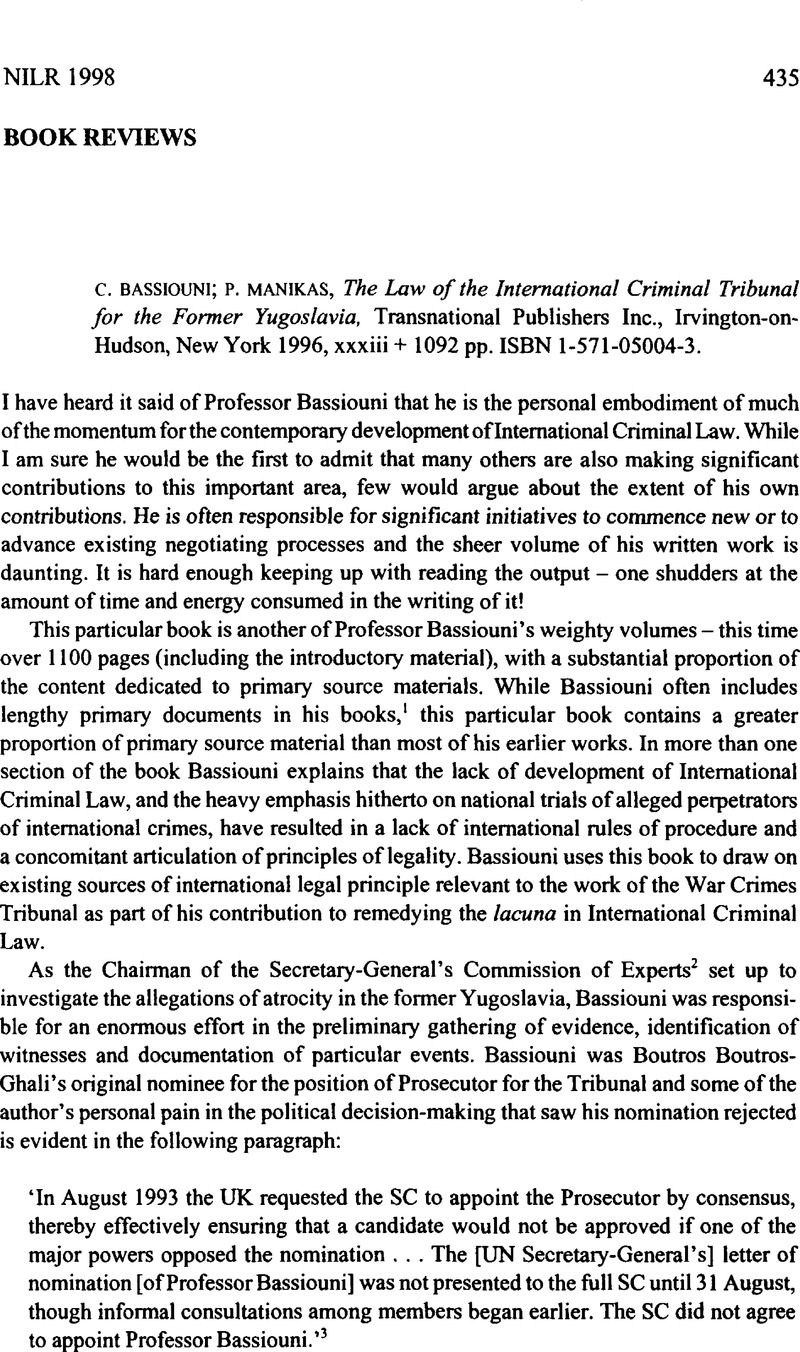No CrossRef data available.
Article contents
C. Bassiouni; P. Manikas, The Law of the International Criminal Tribunal for the Former Yugoslavia, Transnational Publishers Inc., Irvington-on-Hudson, New York1996, xxxiii + 1092 pp. ISBN 1-571-05004-3.
Published online by Cambridge University Press: 21 May 2009
Abstract

- Type
- Book Reviews
- Information
- Copyright
- Copyright © T.M.C. Asser Press 1998
References
1. See, for example, Bassiouni, C., Crimes Against Humanity in International Criminal Law (Dordrecht, Martinus Nijhoff Publishers 1992).Google Scholar
2. Established pursuant to SC Res. 780, UN Doc. S/RES/780 (1992).
3. P. 210
4. For example, see pp. 257, 446, and substantial extracts from Commission of Experts' Reports throughout substantive chapters of the book.
5. P. xvii.
6. The Tribunal's first indictment was issued against Duško Tadic in February 1995. See Prosecutor v. Duško Tadic a/k//a/ ‘Dule’, International Tribunal for the Prosecution of Persons Responsible for Serious Violations of International Humanitarian Law Committed in the Territory of the Former Yugoslavia Since 1991, Case No. IT–94–1–T, 7 May 1997, para. 9, p. 4.
7. Pp. 229–230.
8. The procedural history of the case against Duško Tadic is discussed in some detail in the Opinion and Judgment, n. 6 above, at paras. 6–35.
9. See, for example, pp. 514–520.
10. One observation that can be made, however, is that although the Tribunal has cited Bassiouni's book on Crimes Against Humanity (see n. 1 above) in its Opinion and Judgment in the trial of Tadic (see n. 6 above), the Tribunal has not cited the current book. That, of course, does not mean that various members of the Tribunal have not considered the book.
11. 49 UN SCOR, UN Doc. S/1994/674/Add.2 (Vol. 1) (31 May 1995).
12. P. 201.
13. At p. 215, Bassiouni discusses the judicial independence of the Tribunal without considering the implications of the creation of the Tribunal by executive decision. Later, (see p. 251) when Bassiouni considers the likely prospects for the Council's continued support for the Tribunal, he does not discuss the undesirable possibility of the Council terminating the work of the Tribunal by another resolution, even if the Tribunal is acting in a highly effective manner.




